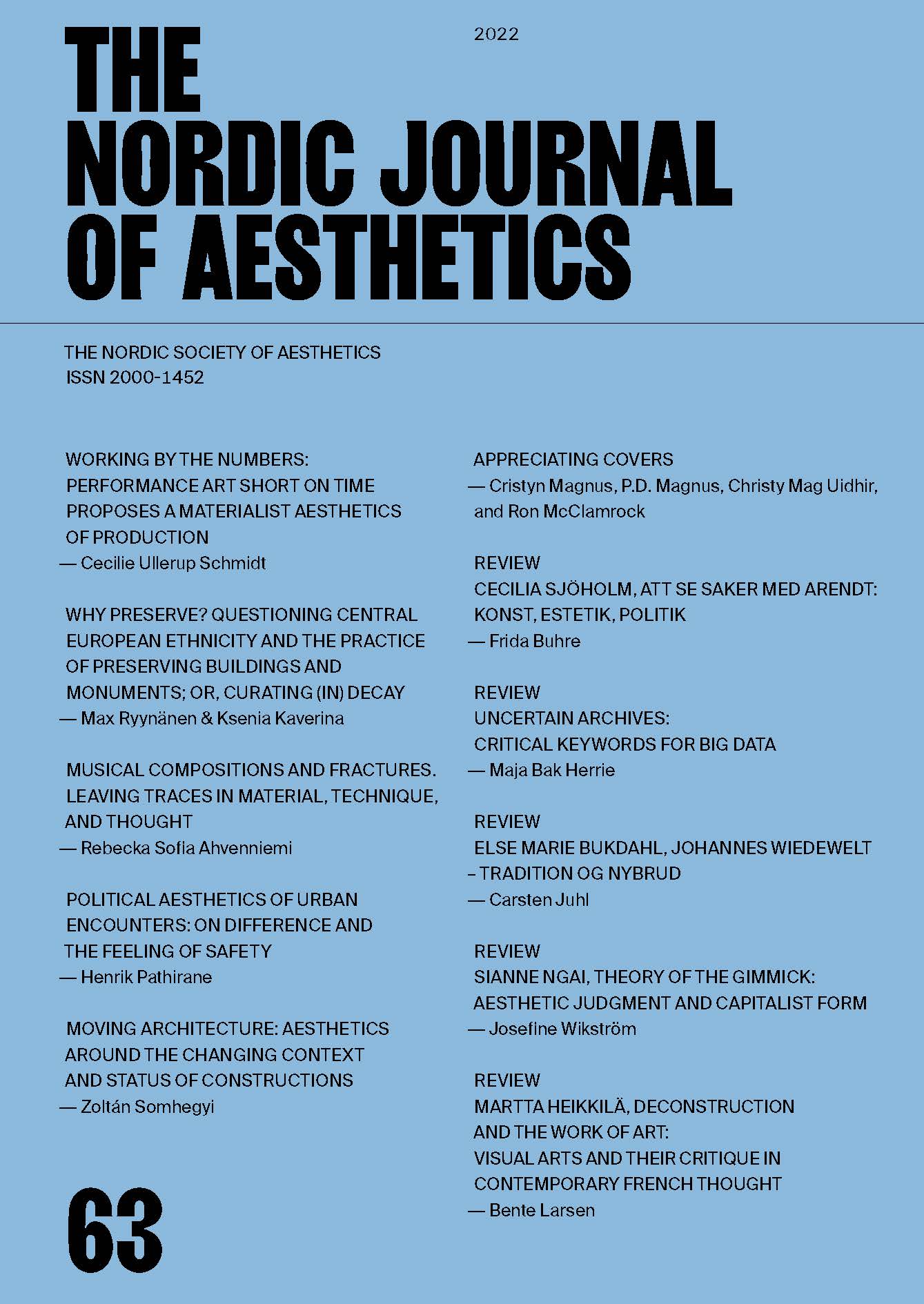POLITICAL AESTHETICS OF URBAN ENCOUNTERS
ON DIFFERENCE AND THE FEELING OF SAFETY
DOI:
https://doi.org/10.7146/nja.v31i63.133120Keywords:
Political aesthetics, Urban encounters, Understanding, Judgment, Aesthetic sensibility, Urban aesthetics, Everyday interaction, Public sphereAbstract
Aesthetics and politics are intertwined in our everyday encounters and even nonverbal encounters are negotiations of meanings, values, and means of representation. The aesthetic political negotiation of urban encounters is politics beyond consensus and dissensus: an open-ended process of altered perception. Perception of difference, a feeling of safety, and a form of distanciation are required for the political potential to be actualized. This article begins by discussing urban encounters and the notion of politics. Politics takes place in the public sphere and is actualized in political negotiations, which in ephemeral encounters take the form of pondering, or hermeneutic understanding and judgment. The second section discusses the prerequisites: safety, distance, and difference. Two points are made. Firstly, the political encounter contains a practical-ethical demand for effort in our everyday life. Secondly, training aesthetic sensibility assists in this pursuit. This article is an example of an approach of inquiry that can be called political aesthetics.
Downloads
Published
How to Cite
Issue
Section
License
Copyright (c) 2022 Henrik Pathirane

This work is licensed under a Creative Commons Attribution 4.0 International License.
Authors who publish with this journal agree to the following terms:
- Authors retain copyright and grant the journal right of first publication with the work simultaneously licensed under a Creative Commons Attribution License that allows others to share the work with an acknowledgement of the work's authorship and initial publication in this journal.
- Authors are able to enter into separate, additional contractual arrangements for the non-exclusive distribution of the journal's published version of the work (e.g., post it to an institutional repository or publish it in a book), with an acknowledgement of its initial publication in this journal.
- Authors are permitted and encouraged to post their work online (e.g., in institutional repositories or on their website) prior to and during the submission process, as it can lead to productive exchanges, as well as earlier and greater citation of published work (See The Effect of Open Access).




